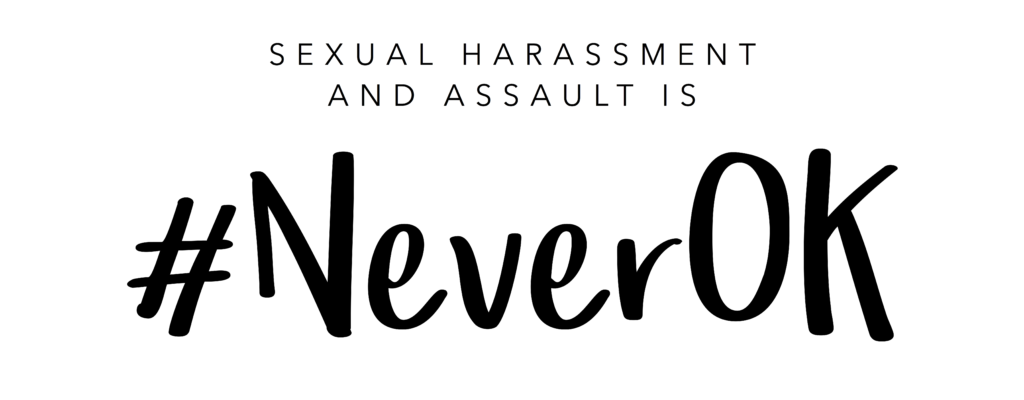Sexual assault or harassment is never OK.
The recent ‘Change The Course’ report revealed a significant proportion of Australian students had, in 2016, experienced some form of sexual harassment in a university setting on at least one occasion (see: Dealing With Sexual Harassment at Universities). In response, student led campaigns such as Never OK Australia are on a mission to put an end to sexual assault and harassment in Australian universities.
We take a look at the #neverok student campaign sweeping Australia.
What is Never OK?
Never OK is a student-led, university-wide campaign advocating for an end to sexual assault and harassment at universities across the globe, stating that “everyone has the right to live, study and work in a safe and supportive environment, and that sexual harassment and assault is Never OK” (Never OK).
Originally initiated by the University of Exeter in the UK as a smaller, local campaign against sexual assault, the Never OK campaign has since broadened to become a powerful global student movement aimed at targeting and eliminating sexual assault and harassment in universities worldwide, steadily gaining momentum across the globe – including in Australia.
Sexual assault and harassment can affect anyone, regardless of age, university, gender identity, sexual 0rientation, religion or cultural background.
The Never OK campaign aims to educate, support and inform students about sexual assault and harassment through lifting the visibility of student support services at universities and encouraging ongoing supportive, shame-free conversations recognising, addressing and challenging these issues. In this way, the Never OK campaign encourages the growth of more inclusive student spaces at universities across the globe – and also right here, in Australia.
How can I take action?
Be informed- recognise the importance of consent
Consent is important – really important.
If you’re unsure about consent, take a look at Never OK’s explanation of consent here. By staying educated and informed, you’ll also be able to debunk any myths surrounding consent.
Speak out – it’s #neverok
Sexual assault and harassment may sometimes seem difficult to talk about – but that’s exactly the reason why we need to have the conversation. To break stigma, we need to talk about sexual assault and harassment – why it’s wrong, why it needs to be challenged and why it’s Never Ok.
By more openly challenging and condoning sexual assault and harassment, you’ll help create safer, more inclusive university spaces for all. Remember – there’s never any shame in seeking support, or providing support to others in need.
Online, you can follow and/or contribute to the ongoing conversation via social media on Instagram, Facebook or Twitter using the hashtag #neverok.
Sign the Pledge
Students at Australian universities are already showing their solidarity and taking a stand against sexual harassment and assault by signing the Never OK pledge. Students are vowing-
-
-
“To take action to prevent sexual harassment, and support others to do so too.
-
To not tolerate, condone or ignore sexual harassment of any kind about sexual harassment and I will challenge sexual harassment when possible.
-
To educate myself and others about consent and sexual harassment. What it is, how it makes people feel and why it’s never OK.” (Never OK)
-
You too can take a stand against sexual harassment and assault in universities by signing the pledge here.
Seeking or Providing Support
If you or a friend has experienced, or are currently experiencing, sexual assault and/or harassment, don’t feel afraid to reach out to family, friends, counseling or support networks for guidance and support.
For further information, advice and links to support services, see our article on Dealing With Sexual Harassment at Universities.
To find out more information on consent, the pledge and #neverok, check out the Never OK website.





